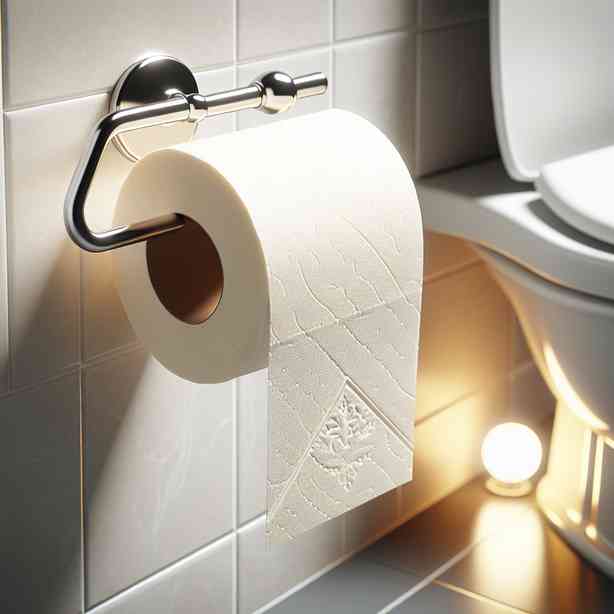
The folded corner on toilet paper, a seemingly inconspicuous detail, serves a greater purpose than mere aesthetics. Originating from practical design choices, the folded corner has evolved into a widely recognized symbol of cleanliness and hospitality. As we explore this topic, we will delve into the implications of this small detail, the psychology behind it, and even the environmental considerations related to toilet paper use.
Toilet paper—an often-overlooked item—plays a critical role in personal hygiene. Its primary function is to provide a clean, convenient means for users to maintain their bodily hygiene after using the restroom. But the design choices surrounding toilet paper, particularly the folded corner, go beyond mere functionality. In many public restrooms, a neatly folded corner sends a message: the restroom is clean, well-maintained, and ready for use.
The act of folding the corner of a roll of toilet paper can be traced back to hospitality practices. In hotels and high-end establishments, this small nod to cleanliness creates a welcoming atmosphere for guests. In these contexts, the folded corner marks the paper as fresh and untouched, reassuring users about the sanitation level of the facilities. This practice, while simple, has become a standard in many places globally, associating neatness with both comfort and care.
Psychologically, the folded corner influences user perceptions significantly. A visual cue indicating cleanliness can lead to heightened trust in the establishment’s overall hygiene standards. Guests and users of public restrooms may be less likely to hesitate when they see that small folded corner, suggesting that someone has taken the time to ensure a pleasant experience. This attention to detail can mean the difference between an enjoyable leg and one that leaves a lasting negative impression.
In addition to its psychological effects, the folded corner also has practical implications. It can serve as a point of access when someone needs to use the toilet paper quickly. In situations where time is of the essence, having a designated point to start from simplifies the process, making it more user-friendly. Additionally, when the paper is folded, it reduces the chance of excessive tearing and ensures that users can easily control how much paper they utilize.
However, alongside the design and psychological aspects, we must also consider the environmental implications of toilet paper use. The production of toilet paper has significant environmental impacts, mainly due to deforestation, water use, and energy consumption. Many companies are now shifting towards more sustainable practices to lessen their footprints. While some brands have started utilizing recycled materials, others are exploring alternative sources that do not rely on traditional tree pulp.
The folded corner symbolizes a commitment to cleanliness, but it is essential to remember to make environmentally conscious choices as well. Users should consider the source of their toilet paper and, when possible, opt for products that balance both functionality and sustainability. By doing so, we maintain our health and hygiene while safeguarding the planet.
Interestingly, the evolution of toilet paper extends beyond just the folded corner. The early use of materials for personal hygiene included leaves, grass, and cloth. The transition to paper marked a pivotal moment in human history, streamlining restroom practices. As we reflect on this history, it is undeniable that details like the folded corner provide insight into our cultural norms surrounding hygiene and etiquette.
Furthermore, the folded corner is not only an indication of cleanliness but also a simple yet effective way to foster a positive user experience. In settings like restaurants or theaters, the presence of neatly folded toilet paper can enhance a customer’s overall experience. Brands that pay attention to these finer details show that they prioritize quality and care, which likely reinforces customer loyalty.
From a practical standpoint, establishments often train their staff to ensure these folding techniques are employed consistently. The presence of folded toilet paper can boost customer satisfaction and lead to positive reviews. It creates an image of meticulousness, where every aspect of the customer’s experience is carefully considered.
In conclusion, the folded corner on toilet paper is a prime example of how small details can carry substantial meaning. It is not merely an aesthetic choice; it serves as a signal of cleanliness, care, and a commitment to customer service. As we continue to prioritize both hygiene and environmental responsibility in our choices, it is vital to remember that every seemingly insignificant detail contributes to our overall experiences and perceptions.
By fostering awareness of these elements, we can make informed choices that reflect our values. The folded corner represents more than just a practical function; it embodies the intersection of cleanliness, hospitality, and environmental consciousness. As we move forward, let us appreciate the nuances of everyday items like toilet paper and the messages they convey about our societal values and concerns for the planet.


